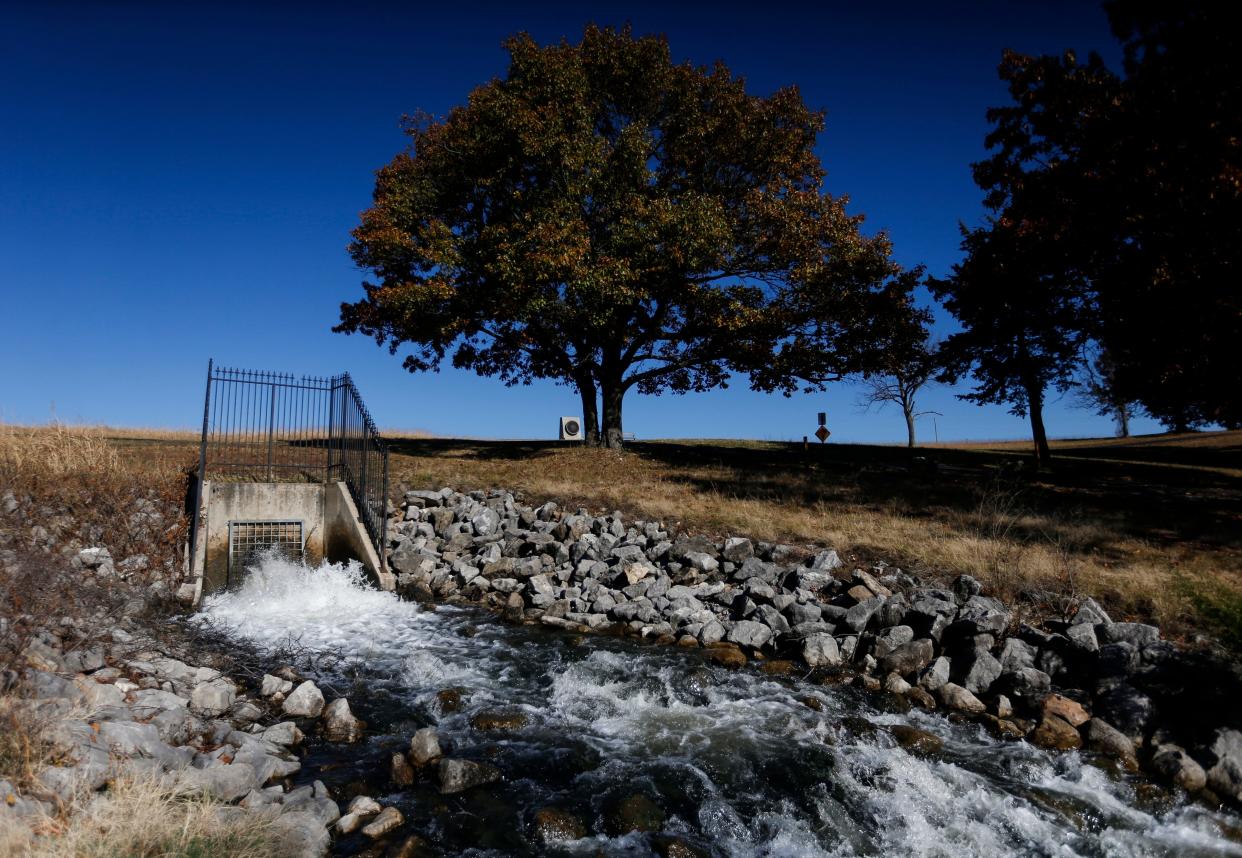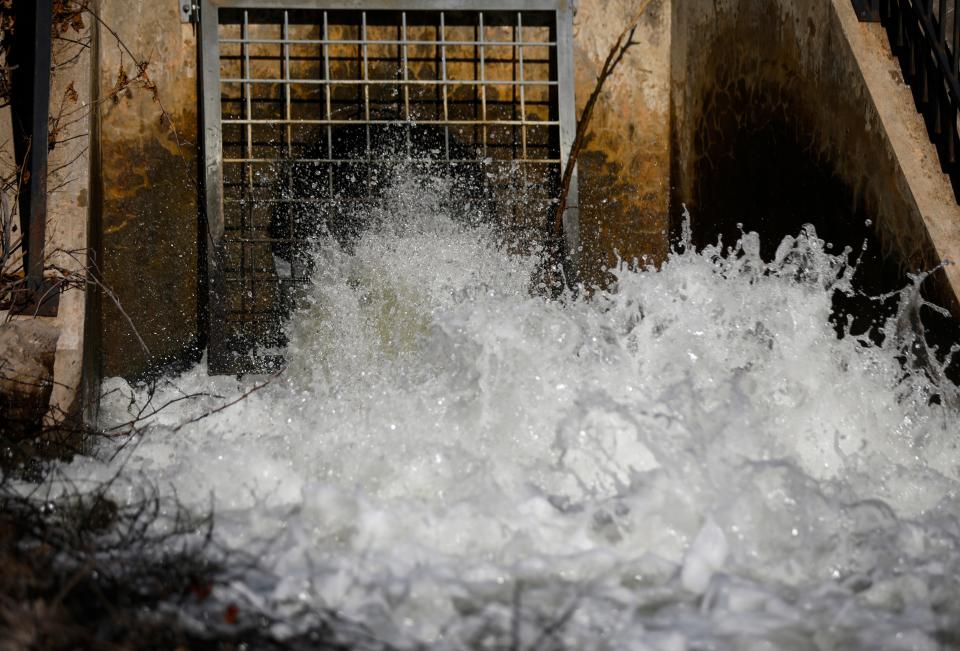MO Supreme Court ruling against Cedar County spurs worries about Springfield water supply

Missouri Supreme Court Justice Paul C. Wilson this week handed down an opinion upholding a state law that prohibits counties and health center boards from enacting stricter regulations on concentrated animal feeding operations than the state.
The law, known as Senate Bill 391, was passed in 2019. Soon after, the Cedar County Commission, the Cooper County Public Health Center, the nonprofit Friends of Responsible Agriculture and three property owners filed a lawsuit in Cole County Circuit Court calling it unconstitutional.
They argued that lawmakers violated the Right-to-Farm amendment when they barred counties from enacting any rules on CAFOs that are more stringent than the state Department of Natural Resources. While the first judge assigned to the case temporarily blocked the law, the next judge canceled that order and eventually ruled in favor of the state in December 2021.
From 2019:Judge halts new Missouri law blocking local regulations on CAFOs
The Cedar County Commission, Cooper County Public Health Center and Friends of Responsible Agriculture appealed the decision in January 2022.
The state Supreme Court decision handed down Tuesday was met with cheers from Missouri Attorney General Andrew Bailey and some agriculture supporters. Missouri Farm Bureau President Garrett Hawkins calling the ruling a win for "farm and ranch families (that) have been handcuffed by scientifically unfounded rules and regulations promulgated by rogue bureaucrats."
Advocates for clean water see the opposite.
"With this decision, Missouri allows and encourages the ruin of our rivers and lakes," Dan Chiles, former Springfield council member and environmentalist, said in a statement to the News-Leader. "There is no limit on the number of meat factories allowed in our state and no limit on the toxic waste they spread."
More:Considering drought and future needs, experts chart course to preserve water in the Ozarks
Regulations are 'not necessarily a one-size-fits-all'
Clean water advocates say state regulations — or the lack thereof — on big hog farms and other CAFOs become more problematic as you travel south. Cedar County, and other areas of southwest Missouri, have what is known as karst topography: a landscape characterized by caves, fissures, sinkholes and underground streams.
And different landscapes need different rules, says Roddy Rogers, executive director of SWMO Water and former head of drinking water operations for Springfield City Utilities.
"There needs to be proper controls, operations and monitoring on any kind of an operation like that. Sometimes those are different for different areas; it’s not necessarily a one-size-fits-all," Rogers said. "What might work or what’s needed in southwest Missouri might not work or be what’s needed in northeast Missouri.”
More:Volunteers needed for annual Earth Day cleanup at Lake Springfield
Because of southwest Missouri's karst topography, if agriculture organizations dispose of more manure than plants can absorb, the contaminants can wash into streams and groundwater.
It doesn't mean that development can't thrive, however.
"With the proper controls, you can build things. You can’t just not build things in southwest Missouri — you can build things in southwest Missouri with proper environmental controls and monitoring,” Rogers said.
Senate Bill 391, and the Supreme Court decision keeping it in place, means local governments in the area won't be allowed to enact those rules or regulations.
'No water, no future'
So why are Springfield-area water advocates sounding the alarm about CAFO regulations in Cedar County? It all comes down to securing adequate drinking water for the future, they say.
SWMO Water is made of two organizations, the Tri-State Water Coalition and the Southwest Missouri Joint Municipal Water Utility Commission, which both aim to "ensure adequate and affordable water supply for" a 16-county area. The safety and accessibility of the water is also a concern.
“(Water) is a three-legged stool: You’ve got to have enough, it’s got to be safe to drink and it’s got to be accessible. Without any one of those three legs, the stool doesn’t stand," Rogers said. "They’re kind of three separate things, but all interconnected. If you have a lot of water, it doesn’t matter if it’s a lot if it’s not safe, or if you can’t access it.”
Cedar County is home to Stockton Lake, which supplies 60% of Springfield's drinking water.

From 2021:New tap water database opens up conversation about water quality: How clean is clean enough?
There have also been proposals that would increase the amount of water sent to Springfield. In 2023, City Utilities Springfield was deemed eligible but not approved for a $5 million ARPA grant for that project.
Based on projected population growth and demand for water, SMWO has also suggested extending Stockton Lake's pipeline to Joplin, based on projected population growth and water demand. If that pipeline is eventually built, the entire lower third of Missouri will be almost completely dependent on Stockton Lake for its drinking water, Chiles wrote in an analysis.
“To plan for the future, you have to get out ahead of it, and it’s time to plan for the future," Rogers said. "No water, no future."
Susan Szuch is the health and public policy reporter for the Springfield News-Leader. Follow her on Twitter @szuchsm. Story idea? Email her at sszuch@gannett.com.
This article originally appeared on Springfield News-Leader: MO Supreme Court ruling on CAFOs prompts concerns about water supply

